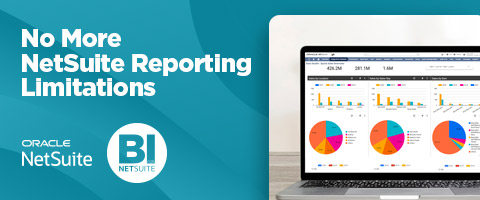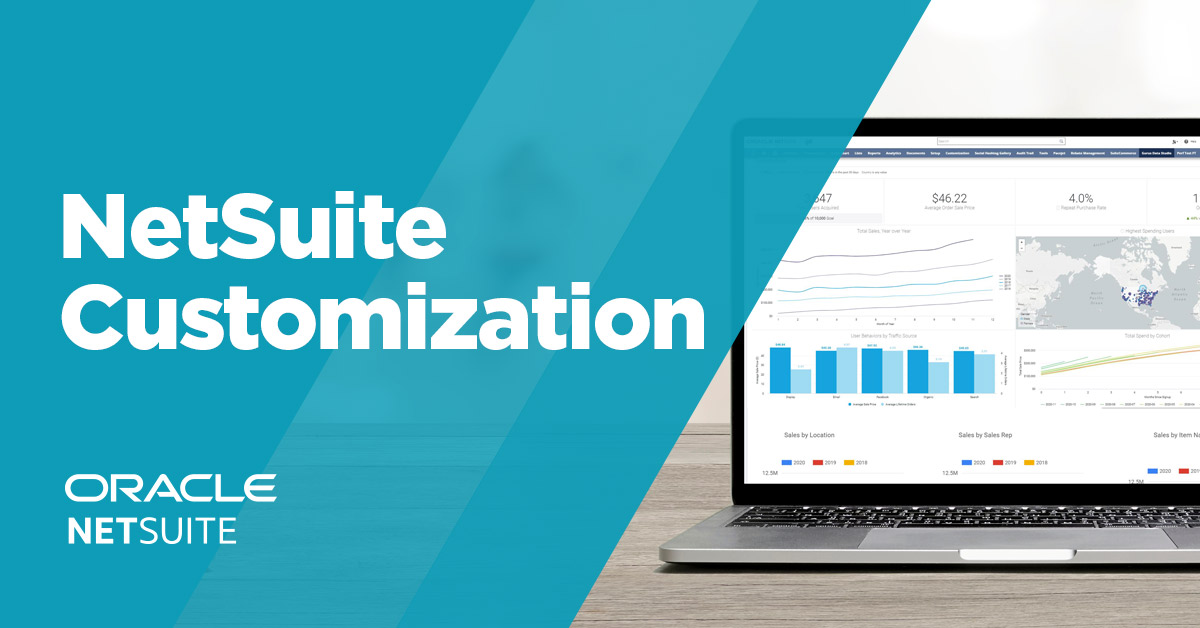Table of Contents:
When speaking with NetSuite customers it is not uncommon to muddle terminology between out-of-the-box functionality that can be configured by customers and scripted customizations that require coding expertise. As businesses implement NetSuite, they often encounter the terms "customization" and “configuration.”
While both concepts are integral to tailoring the system to meet specific requirements, it is essential to understand the differences between them. In this blog post, we will detail the differences between customization and configuration in NetSuite ERP, providing examples of features and use cases for better clarity.
Request More Info About Customization vs. Configuration in NetSuite
What is “Configuration” in NetSuite ERP?
Configuration refers to the process of setting up and adjusting various system settings and features within NetSuite ERP to align with an organization's specific needs. These changes can be achieved using built-in tools and options provided by the system, without the need for any coding or programming expertise.
Configuration allows users to modify existing features, layouts, and settings through drag-and-drop options to optimize their business processes.
Here are some of the more common configuration capabilities in NetSuite:
Interface Layout and Content Configuration
NetSuite offers a highly flexible interface that can be configured to suit individual user preferences. Users can rearrange dashboards, add or remove portlets, and modify basic reports and the layout of forms and lists.
For instance, the finance team may reorganize their dashboard to prominently display relevant key performance indicators (KPIs) such as profits, revenue, expenses and other financial ratios that are critical to the business. More complex configuration can be achieved by creating new fields for use and configuring reports that leverage formulas and conditional formatting capabilities available out-of-the-box.
Workflow Configuration
One of the core benefits of NetSuite is to deliver a configurable workflow engine to map to a company's unique business processes. NetSuite ERP allows businesses to streamline their operational workflows by configuring approval processes, routing rules, and notifications.
For example, an organization can configure a specific workflow that automatically triggers an approval request for purchase orders exceeding a specified amount. This configuration ensures efficient and consistent approval processes.
User Role Configuration
NetSuite ERP provides powerful user management capabilities, empowering administrators to configure user roles and permissions allowing or restricting access to specific records, transactions and reports. By defining roles and assigning appropriate read and write permissions, businesses can ensure that users have access to only relevant data in NetSuite ERP to perform their specific job functions while maintaining data security.
It is important to note, to help accelerate these configuration capabilities, NetSuite delivers SuiteSuccess editions shipped with predefined settings based on typical user roles and industry best practices. Moreover, NetSuite is a very robust cloud-based solution that requires a deep knowledge of the impact of these changes to the system.
That being said, although there are many options that allow businesses to leverage configuration for simple changes, it is recommended to work with a certified NetSuite expert or experienced partner to ensure they get the desired results.
What is “Customization” in NetSuite ERP?
Customization in NetSuite ERP involves making modifications to the system's behavior and functionality beyond the scope of configuration. Unlike configuration, customization typically requires advanced technical skills or assistance from NetSuite partners or developers.
Customization comes into play, once coding and scripting are required to achieve the desired results. Customization allows businesses to tailor the ERP system to their unique business processes, industry requirements, and specific workflows beyond the out-of-the-box functionality delivered by the system.
Here are some of the more common customization capabilities in NetSuite:
Advanced Reporting and Analytics
Although NetSuite ERP provides standard reporting capabilities, in some cases report customization will require scripting or integration to a custom developed Business Intelligence (BI) and Data Warehouse solution to achieve more advanced reports and analytics tailored to an organization’s specific requirements. Through customized scripted solutions and/or data integration, organizations can generate comprehensive reports and dashboards that provide deeper insights into their financial performance, sales trends, inventory analysis, and more.
Scripting and Custom Workflows
NetSuite's SuiteScripting framework empowers businesses to create custom scripts and workflows that automate complex processes or extend the system's functionality. This capability allows for sophisticated automation, such as automatically generating custom invoices or triggering specific actions based on predefined conditions.
Based on ECMAScript-standard JavaScript, SuiteScript is a full-featured programming language that allows developers to customize business logic and data objects to orchestrate user events, automate scheduled processes, run map/reduce queries, customize workflow actions and much more. For example, through NetSuite’s scripting language, developers can customize non-native functionality unavailable to users.
Integration and Data Exchange
Customization in NetSuite ERP also involves integrating the system with other applications and systems. This enables seamless data exchange and synchronization between NetSuite and external platforms, such as CRM systems or e-commerce platforms. By customizing integrations, organizations can streamline operations and eliminate manual data entry.
These custom integrations require technical expertise leveraging NetSuite scripting, popular programming languages, available APIs and middleware platforms to deliver these solutions. It is common for businesses to seek a NetSuite partner who can deliver a system architecture and develop a custom integrated solution leveraging popular middleware and iPaaS platforms.
One of the major benefits of NetSuite ERP, is the ability to highly configure and customize the platform to suit a business’ needs, with minimal maintenance and overhead. However, NetSuite’s flexibility still requires expertise due to the inherent complexity of an ERP designed to manage the end-to-end processes of a business.
Contact us today to learn more on GURUS Solutions configuration and customization services.
Learn More About Customization vs. Configuration in NetSuite



